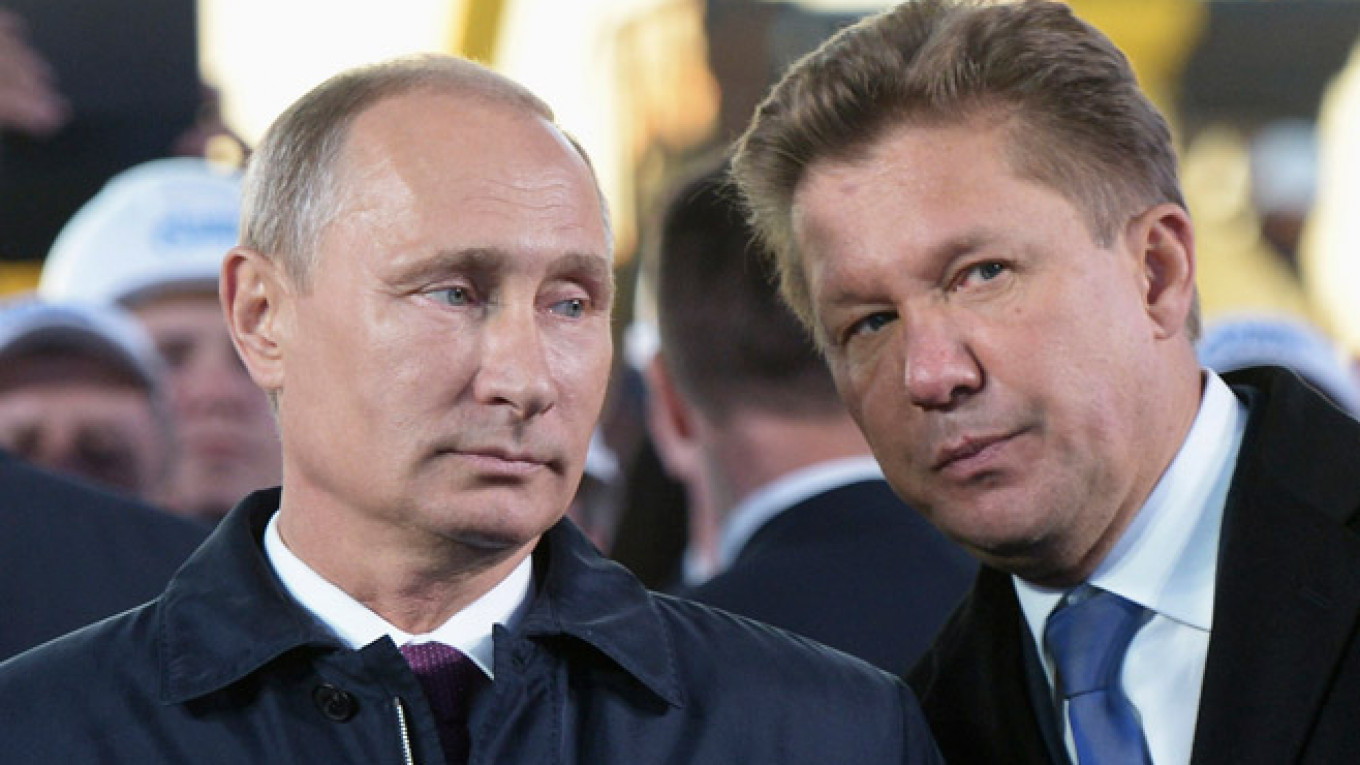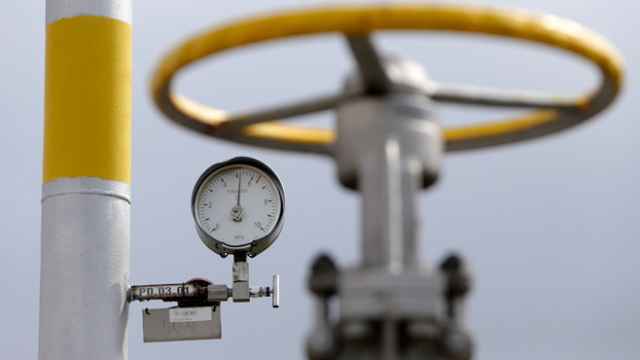WARSAW — Poland said Wednesday that the volume of gas it has received so far this week from Russian gas monopoly Gazprom was down by at least 20 percent.
Some European countries believe Moscow may use a disruption of gas to Europe as a trump card in its confrontation with the West over Ukraine. The row has already dragged ties between Moscow and the West down to their worst since the Cold War.
Ukraine's gas transport monopoly Ukrtransgaz was quoted by a Russian news agency as saying Gazprom was limiting flows to Poland to disrupt supplies of gas in the opposite direction, from Poland into Ukraine.
Kiev is already cut off from Russian gas in a pricing dispute and depends on these "reverse flows" to supply homes and businesses with gas.
Gazprom made no immediate comment. Polish gas monopoly PGNiG said it was trying to find out why volumes were down.
There was no indication that any EU importers of Russian gas besides Poland were affected.
Slovakia, a major hub for Russia gas exports to Europe, said volumes were steady, and operators in Hungary, Bosnia and Serbia said there was no disruption to their supplies.
The reduction in supplies appeared to focus on the Yamal contract, the main route by which Poland buys gas directly from Gazprom. That route includes two pipelines that pass through Belarus and one via Ukraine.
PGNiG said in a statement on Monday it received about 20 percent less gas than contracted and about 24 percent less on Tuesday. It said customers had not been affected for now, and the missing volumes were being made up from other sources.
The Polish firm said the reductions in gas volumes were noted on the Belarus and Ukraine routes, but did not give a breakdown of how much gas was missing from each pipeline.
Igor Gorsky, a spokesman for Gazprom Transgaz Belarus, the Gazprom subsidiary that operates export pipelines via Belarus, said: "There have been no extraordinary situations from our side, or any maintenance work, which could have an impact on supply volumes."
Ties between Warsaw and Moscow are particularly frosty.
Poland has lobbied the EU hard to impose tougher sanctions on Moscow, and it is to host elements of a new NATO rapid reaction force, created in response to the Russian intervention in Ukraine.
Gazprom supplies a third of Europe's gas and for many EU countries it is the main source of power for homes and industry. The Russian firm has said its focus is on continuing to provide stable gas supplies for its customers.
Twice in the past decade, Moscow responded to natural gas price disputes with Ukraine by cutting off supplies, affecting its European clients further down its pipelines.
But a cutoff would also hurt Gazprom. With revenue cut, Gazprom's finances would be affected. It cannot compensate by borrowing from the West because sanctions bar Western financial services from lending to the firm.
Turning off the taps is also technically difficult. The gas has nowhere else to go but out to customers. It is impossible to severely scale back extraction volumes at Gazprom's fields, nor could such huge amounts of gas be safely flared off.
A Message from The Moscow Times:
Dear readers,
We are facing unprecedented challenges. Russia's Prosecutor General's Office has designated The Moscow Times as an "undesirable" organization, criminalizing our work and putting our staff at risk of prosecution. This follows our earlier unjust labeling as a "foreign agent."
These actions are direct attempts to silence independent journalism in Russia. The authorities claim our work "discredits the decisions of the Russian leadership." We see things differently: we strive to provide accurate, unbiased reporting on Russia.
We, the journalists of The Moscow Times, refuse to be silenced. But to continue our work, we need your help.
Your support, no matter how small, makes a world of difference. If you can, please support us monthly starting from just $2. It's quick to set up, and every contribution makes a significant impact.
By supporting The Moscow Times, you're defending open, independent journalism in the face of repression. Thank you for standing with us.
Remind me later.






